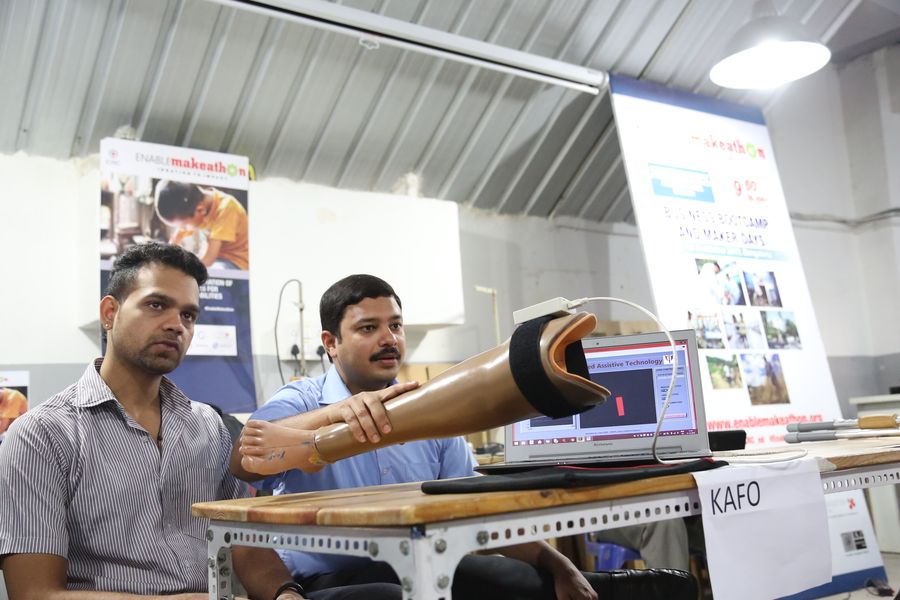“I have seen children with cerebral palsy being left unattended. They end up staring at the ceiling of the room for the whole day and nothing can be more emotionally disturbing,” says Soikat Ghosh Moulic, a participant at the Enable Makeathon. Real life experiences like this made Soikat and a few of his colleagues work towards designing a low cost, prefabricated twin device with adjustable features for sitting and standing specifically designed to cater to the needs of children diagnosed with cerebral palsy.
It is the creation of affordable assistive devices like this which shaped the Enable Makeathon – a 60-day programme in which technology and design experts, persons with disabilities and mentors got together to develop solutions and products for persons with physical disabilities particularly in rural areas.
The exercise began in Bengaluru on 21st November with the Immersion and Challenge Days during which each team introduced its concept and was assigned a mentor to coach team members on elements related to design, technology, business and even domain specific inputs. Exactly 30 days later, the teams got together once again, this time in a Business Boot Camp, followed by the Maker Days where their ideas were translated into products. Based on the designs and their ability to be scalable assistive devices, teams were screened and finally, a total of 17 finalists emerged. Those selected teams (some of which participated online), then competed against each other for the top three positions, for which a total prize money of 50,000 US dollars (approximately INR 33 Lakhs) was on offer.
Some of the participants in the Enable Makeathon had a unique story, such as Naidhroven, who came from Chennai for instance. According to him, he was a muscular dystrophy patient and had a fall which made it impossible for him to walk after that. “Emotionally, I did not want to use a wheelchair. I then worked with my father and gathered locally available material to design a small electric mobility scooter that enables me to move about effortlessly, as well as gives me the independence that I need without being emotionally hurt.”
What made the entire process so interesting was not just the energy and enthusiasm shown by the participants, but also the wide array of proposed devices that the teams from different parts of the world worked on. Many of the ideas that reflected the variety of concepts that the project helped bring together including a wheelchair with bed transfer assistance, a small electric mobility scooter for better access, a wheelchair information portal, and even a device that creates 3D printed prosthetics.
While not all teams won prizes, the ideas and the positivity that characterised the 60 day process was beautifully articulated in what Sridhar Srigiriraju, one of the participants said over a chat. According to him, “…the amount of knowledge, experience and interest generated by the exercise will, over the next two-to-three years, create a pool of innovators and I won’t be surprised if this platform gives birth to a product that will have a global impact.” His words reflect the optimism and ‘can do’ spirit required to bring about a change, however small, something that the first ever Enable Makeathon set out to achieve in the first place.
More: http://www.enablemakeathon.org/


